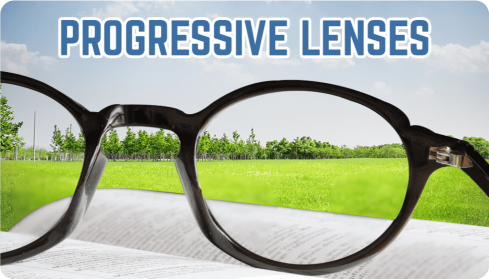![]()
![]() Call us for any query: +91-98-21-21-8128
Call us for any query: +91-98-21-21-8128
![]()
![]() Call us for any query: +91-98-21-21-8128
Call us for any query: +91-98-21-21-8128
Categories
Categories
Indian Optometry & Optician Director's Cut Brand Jade Jaxon Advocacy Mission Vision
25th
Jan,, 2025,Cheap and Best Progressive Lenses in India: A Comparative Study
Posted by : Mukut Sarma

Progressive lenses are a game-changer for those with presbyopia, offering a seamless transition between distance, intermediate, and near vision. But finding the perfect balance of quality and affordability in India can be tricky. In this guide, we’ll compare the cheap and best progressive lenses available in India, analyzing their quality, price, USPs, and customer feedback. We’ll also share tips on what to consider when buying progressive lenses.
Quality: Essilor’s progressive lenses, particularly the Varilux series, are renowned for their precision and wide fields of vision.
USPs:
W.A.V.E. Technology for sharp vision.
Crizal coatings for anti-reflective and scratch resistance.
Price Range: ₹5,000 – ₹20,000 per pair.
Customer Feedback: Customers praise the seamless vision transition but note the high price point.
Quality: Zeiss progressive lenses offer exceptional clarity and minimal distortion.
USPs:
Freeform technology for personalized vision.
Duravision Platinum coatings for durability.
Price Range: ₹6,000 – ₹25,000 per pair.
Customer Feedback: Users appreciate the precision but consider the cost premium.
Quality: Hoya’s progressive lenses are designed for comfort, even during extended wear.
USPs:
Balanced View Control for minimal distortion.
Recharge lenses for digital eye strain.
Price Range: ₹4,500 – ₹18,000 per pair.
Customer Feedback: Loved for their lightweight design, though availability can be limited.
Quality: Nikon’s lenses are known for their sharp optics and smooth transition zones.
USPs:
Presio Master Series for precision vision.
SeeCoat Blue for blue light protection.
Price Range: ₹4,000 – ₹17,000 per pair.
Customer Feedback: Users highlight the clarity but mention the steep cost.
Quality: Rodenstock offers premium progressive lenses with excellent customization options.
USPs:
Impression FreeSign 3 for tailor-made solutions.
Premium coatings for smudge and scratch resistance.
Price Range: ₹6,000 – ₹25,000 per pair.
Customer Feedback: Valued for precision but often considered too expensive.
Quality: Kodak’s lenses deliver affordability and functionality, ideal for first-time progressive lens users.
USPs:
Easy Adapt technology for beginners.
Budget-friendly anti-reflective coatings.
Price Range: ₹3,000 – ₹8,000 per pair.
Customer Feedback: Customers love the affordability but find the options limited for advanced needs.
Quality: Best known for their light-adaptive technology, Transitions lenses offer great convenience.
USPs:
Photochromic lenses for outdoor and indoor use.
Integrated blue light protection.
Price Range: ₹4,500 – ₹20,000 per pair.
Customer Feedback: Users appreciate the convenience but note the slower adaptation in extreme conditions.
Quality: Seiko’s progressive lenses are sleek, thin, and tailored for style-conscious users.
USPs:
Advanced freeform designs for personalized vision.
High-index lenses for a thin profile.
Price Range: ₹5,000 – ₹22,000 per pair.
Customer Feedback: Customers praise the lightweight feel but find the options pricey.
Quality: GKB Opticals offers a range of progressive lenses catering to various budgets.
USPs:
Customizable options.
Nationwide accessibility.
Price Range: ₹2,500 – ₹7,000 per pair.
Customer Feedback: Affordable but may lack premium features compared to international brands.
Quality: Nova progressive lenses are budget-friendly yet provide reliable quality.
USPs:
Digital lenses for screen users.
Photochromic options at affordable rates.
Price Range: ₹3,500 – ₹9,000 per pair.
Customer Feedback: Customers appreciate the balance of price and quality but report occasional adaptation challenges.
|
Brand |
Price Range (₹) |
USP |
Customer Feedback |
|
Essilor |
5,000 – 20,000 |
Sharp optics, Crizal coatings |
High quality, premium pricing |
|
Carl Zeiss |
6,000 – 25,000 |
Precision, Duravision coatings |
Advanced tech, expensive |
|
Hoya |
4,500 – 18,000 |
Comfortable, Recharge lenses |
Lightweight, limited availability |
|
Nikon |
4,000 – 17,000 |
Sharp optics, SeeCoat Blue |
Loved for clarity, pricey |
|
Rodenstock |
6,000 – 25,000 |
Customizable, premium coatings |
Great precision, expensive |
|
Kodak |
3,000 – 8,000 |
Easy Adapt technology |
Budget-friendly, fewer features |
|
Transitions |
4,500 – 20,000 |
Light-adaptive, blue light protection |
Convenient, slower transitions |
|
Seiko |
5,000 – 22,000 |
Thin, advanced freeform lenses |
Lightweight, pricey |
|
GKB Opticals |
2,500 – 7,000 |
Affordable, customizable |
Great value, standard quality |
|
Nova |
3,500 – 9,000 |
Digital-friendly, photochromic |
Balanced cost and quality |
Adaptation Period: Progressive lenses may take a few days to weeks to adjust to. Opt for brands offering easy adaptation features.
Customization: Ensure the lenses are tailored to your prescription and lifestyle needs.
Coatings: Anti-reflective, anti-scratch, and UV protection coatings are essential for durability and comfort.
Lens Material: High-index lenses are thinner and lighter, ideal for higher prescriptions.
Customer Support: Choose brands with good after-sales service and warranty policies.
Budget vs. Quality: While affordability is important, investing in quality lenses ensures better comfort and longevity.
When it comes to progressive lenses, finding the right balance between cost and quality is key. Premium brands like Essilor and Zeiss offer unparalleled quality, while Kodak and Nova provide affordable yet reliable options. By considering the factors above, you can make an informed choice that suits your needs and budget.
Note: If you want to know more about the most suitable lens for your eyes, do visit our optician by booking an appoitnment. Click on the below link to find your nearby optician.
![]()
100% Secure
Payment
![]()
1 Year
Warranty
![]()
10 Days
Return
![]()
Quick
Shipping
![]()
Unbeatable
Service
Leave Your views & comments here